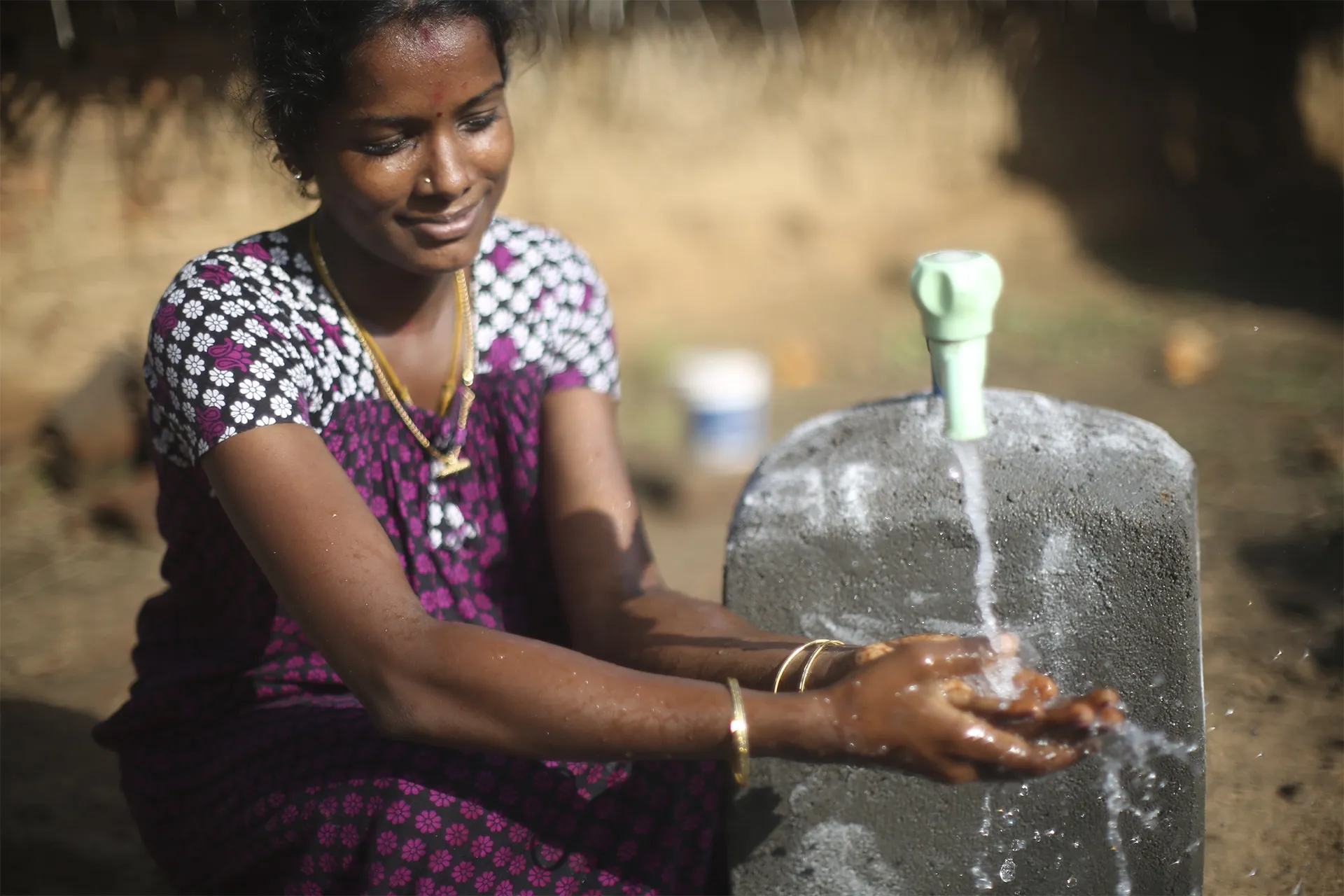On COVID-19 and People Living in Poverty in India
Written by Manoj Gulati, Managing Director India, this article was originally published on Impakter here.
Water touches everything and this pandemic is no exception. Safe water and improved sanitation at home are more than a convenience. They can save lives. There are significant ramifications on the health and survival of households particularly in impoverished communities where access to safe water and sanitation is limited or non-existent. The virality of this pandemic highlights the critical need for increased investment to accelerate access to safe water and sanitation for all. If we are to reduce the impact of this and future pandemics, we must ensure these two vital needs are met in countries around the world.
Since 2005, Water.org has played a significant role in India’s progress toward improved water, sanitation, and hygiene. By partnering with different organizations, including microfinance institutions, self-help group federations, housing finance corporations, commercial banks, payment banks, social enterprises and the Government of India, we have empowered more than 13 million people across twelve states with access to safe water or sanitation.
"With Swachh Bharat leading the way, we have contributed to policy changes which incentivize lending for water and sanitation, partnered with government agencies at the national and state levels and advocated to various financial institutions to create water and sanitation products. Overall, this partnership has helped make record progress in building the solutions to achieve sanitation for all." — Gary White and Matt Damon, Co-founders, Water.org — The Swachh Bharat Revolution
Our impact in India supports Prime Minister Modi’s initiatives to prioritize water and toilets for every home in the country. In 2014, he launched the Swachh Bharat Mission to accelerate efforts to achieve universal sanitation coverage. Then in August 2019, Prime Minister Modi announced the allocation of $50 billion to the Jal Jeevan Mission — this is a program designed to provide piped water to all homes in India by 2024. While these efforts remain in place, millions in India were not and are not prepared to safeguard their families from the COVID-19 pandemic.
Without access to safe water or toilets at home, families across India were already at risk of contracting infectious diseases. And now they are vulnerable to contracting or spreading another life-threatening disease, COVID-19. The perpetuation of these diseases is due partly to the lack of adequate handwashing. Like cholera, typhoid and dysentery, the novel coronavirus can spread easily when safe water and toilets are not available for washing hands and containing waste.
Here, Jeyalakshmi shares how thankful she is to have a toilet at her home during this pandemic, thanks to those who support the work of Water.org.
According to the CDC, novel coronavirus spreads in many ways. Because millions of Indians have no choice but to relieve themselves in the open, according to the World Health Organization untreated waste is an even greater health risk. And, the World Bank estimates that 21 percent of communicable diseases in India are linked to unsafe water, the lack of hygiene practices like washing hands, and the lack of improved sanitation.
So, what do you do when you have no water or toilet at home? You leave home. Like many countries, in India women and children are usually responsible for the task of collecting water. Vessels in tow, they may walk a mile or more to a community well or common water stand. In doing this, they often have no choice but to wait in long lines hoping there is enough water left for them.
Women in this village wait in pre-marked circles, six feet apart, to fill their vessels with water. For each of these women, a lack of access to safe water at home is not just an inconvenience, it is life-threatening. From the time they leave their homes these wives, daughters, and mothers are exposed to the coronavirus. And though they may wear face masks, they walk potentially miles, making several trips to get the water their families need to survive. Upon return the reality is this water may not be prioritized for handwashing. After the labor required to achieve it, the priority will be that their children remain hydrated and that their food be prepared to prevent starvation.
COVID-19 is not the first and will not be the last health crisis the world will face. Resilience to future crises depends on actions taken now, as well as on policies, institutions and capacity put in place during normal times. Together we can achieve our vision of universal access to water, sanitation, and hygiene. Join us at Water.org.
